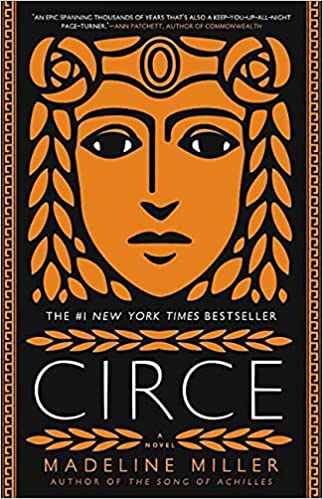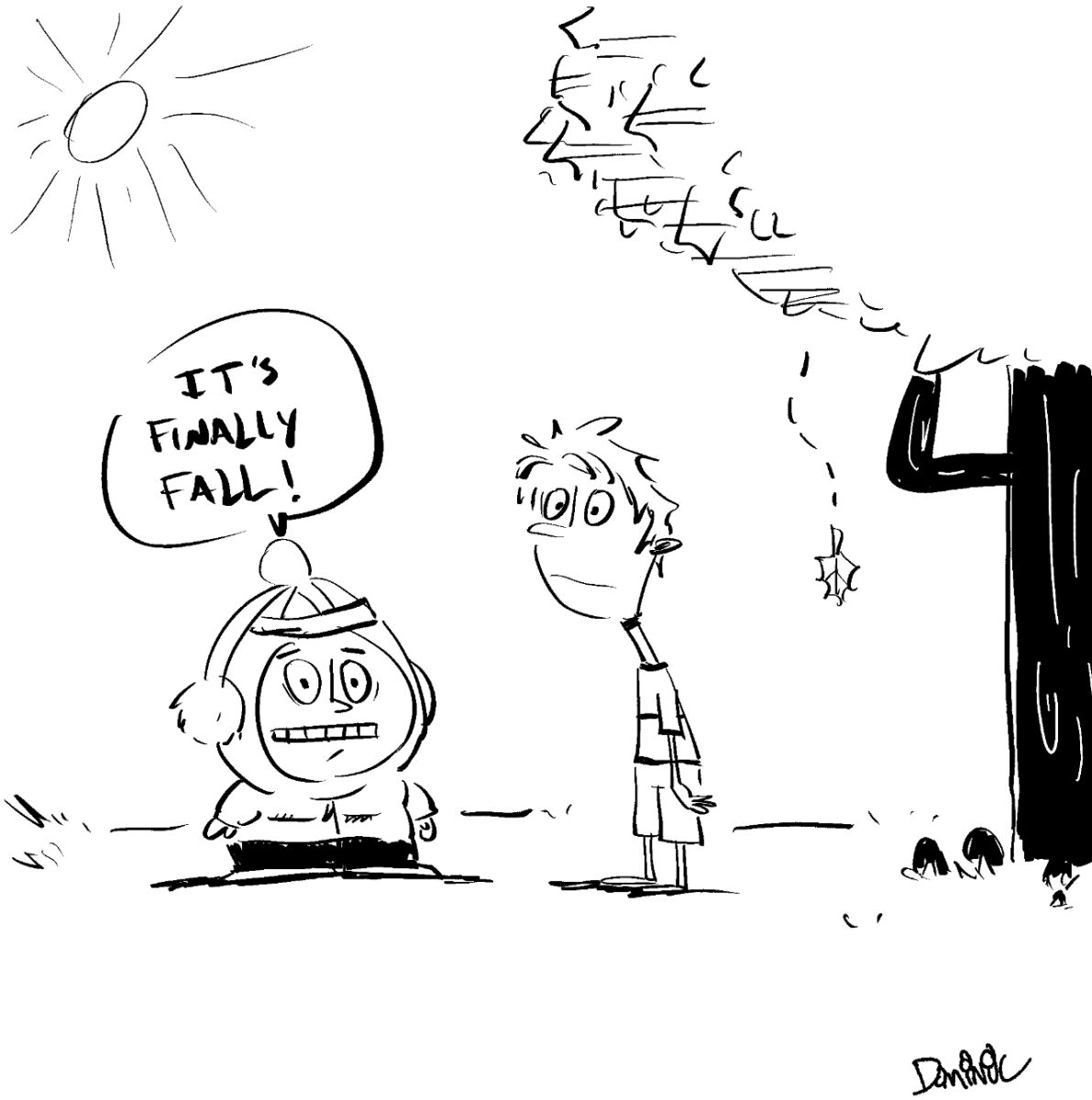Book Review of “Circe”

https://www.google.com/search?q=circe+by+madeline+miller&rlz=1CABQYG_enUS948US948&source=lnms&tbm=isch&sa=X&ved=2ahUKEwjzq9CF4dz1AhVGIEQIHcpyApYQ_AUoAnoECAEQBA&biw=1366&bih=649&dpr=1&safe=active&ssui=on#imgrc=oHlj1ZtkS_sSMM
February 23, 2022
(Spoiler warning)
Background:
The Book “Circe” by Madeline Miller is a retelling of a figure in Greek mythology. Circe is the daughter of Helios (the sun god) and Perse (an ocean nymph). Circe is best known for her minor part in Homer’s epic poem “The Oddesy” when she turned Odysseus’s men into swine and kept Odysseus on Aeaea for a year; delaying his return to Ithaca. She is able to turn the men into swine because she is a sorceress who has a taste for transformation.
Summary:
Circe is born a god, she is the daughter of the Titan Helios; the sun god, and Perce; a water nymph. She lacks the beauty and favor of her siblings, who treat her unkindly. The exception of this is her brother Aeëtes, however, he left after being granted a kingdom to rule.
Circe soon after falls in love with a mortal sailor by the name of Glaucos. She visits him all the time but is soon saddened by his fragility. She seeks to solve this problem and goes to her uncles for an answer. She hears of flowers that can revile the true nature of a creature. She takes Glaucos to the island and attempts to turn him immortal. It is here that she turns Glaucos into a sea god. She rejoices in her success, but Glaucos instead shows interest in other nymphs, especially Scylla. Circe grows angry and takes the flowers to Scylla’s private baths, she imagines Scylla’s true self to be an ugly monster that no one could possibly love. The next day she hears gossip that Scylla has to turn into a horrific sea monster. They also say that Scylla has escaped into the sea. Circe is full of regret.
Aeëtes hears of what Circe has done and tells her that she is Pharmakeia which is the Greek word fr witch. Circe owns up to her actions, and the Olympians call for punishment, and is exiled to an island for eternity. She learns that the island’s name is Aeaea, in her early exile she hones the use of herbs and magic. One day, Circe is excused temporarily from her exile when Daedalus, a famed mortal craftsman, arrives at Aiaia, requesting help for Circe’s sister, Pasiphaë. Circe goes and helps her sister birth the Minotaur. Circe uses her magic to manage its hunger and Daedalus is forced to build the Labrinth. Circe and Daedalus become lovers, but Circe must leave. He gifts her a beautiful loom. Later she hears from Hermes that Daedalus crafted wings for him and his son Icarus to escape, but Icarus flew too close to the sun and fell into the sea.
One day, Odysseus and his men arrive. He has an herb that prevents Circe from harming him, the information given to him by the god of thieves. She finds him charming, they become lovers and she promises not to harm him. He stays on the island for a year. Circe knows he is married, but she yearns for him to stay. Before he leaves, Circe sends him to a prophet and warns about the obstacles in his trip home.
But Circe is pregnant and her mortal son, Telegonus, is born. Athena wants the child dead and offers her eternal blessings in exchange, but Circe refuses. Circe uses powerful magic to protect the island and her son from Athena and others who seek to harm him. Telegonus grows up but longs to visit his father. Circe agrees but only that he followers the terms she has for him. She agrees to suffer eternal pain to acquire the tail of Trygon, a sea god. But Trygon ultimately doesn’t extract the price and simply tells her to return it when she’s done.
Telegonus leaves for Ithaca and seeks out his father, Odysseus misunderstood his intentions and fought him instead, scratching himself on the Trygon’s tail. Circe realizes that Athena wanted Telegonus dead to prevent Odysseus’ death. Telegonus has also brought Telemachus and Penelope to the Aeaea. Penelope worries Athena will claim Telemachus in Odysseus’s absence and hopes for Circe’s protection. Circe uses magic to protect them, yet Athena still makes her demands. She wants Telemachus to an empire, but he declines, having no desire for glory as his father did. However, Telegonus accepts in his stead.
With Telegonus gone, Circe calls for her father, Helios, demanding that Zeus releases her from her exile. She threatens Helios to tell Zeus of his plans of war against the Olympians. Free to leave, Circe and Telemachus turn Scylla into stone, and Circe confides in Telemachus. Penelope chooses to stay on Aeaea becomes an expert on herbs and becomes the new Witch of Aiaia.
The book ends with Circe making a potion to bring forth her true self. She then has a vision of herself as a mortal, growing old with Telemachus. She drinks the potion and the book ends.
Theme (this section contains spoilers):
The main themes in this novel are gender dynamics, mortality/immortality, fate, and maturity. Gender dynamics are presented in the book by having famous mythological events be told through a female-centered lens and perspective. Circe, being a woman during the time of Ancient Greece, is faced with a lot of examples of sexism and misogyny. Miller uses Circe to craft a beautifully feminist novel that evaluates the power dynamic between men and women. Immortality is a main theme in the book because it is constantly shown throughout the novel. We see that Circe struggles with her immortality during her exile on the island Aeaea, where she is bound to for all of eternity. Circe grows restless with the desire to see parts of the world that she cannot. We also see Circe grow into her divinity as the centuries pass by and shape her into a form she was never meant to hold. Mortality is another important theme because Circe is continually fascinated and envious of those who hold mortality. Fate is another main theme because it signifies Circe’s desire and drive for change although her life as a goddess is tied to an eternal fate. Maturity is the last of the main themes in the novel. It is shown every time Circe has one of her ideals or perception of something completely knocked from her as she grows more mature, and has a better understanding of herself.
Characters:
Circe: by the second half of the book has been alive for a thousand years. Her character has developed greatly from the start of the book. We see how she slowly becomes more reflective about her experiences, and how the book becomes more somber as the author wires of Circe’s loneliness and alienation in her exile. The novel further explores how her perception of the world was warped with misunderstandings.
Odysseus: In The Oddesy, Circe takes up a small part in Odysseus’ journey. We see him and his men on the island of Aeaea with Circe. In this part of the book, he is witty and charming with a bright spirit. He is kind to his men but at times he has his moods. Circe sees all of this, yet her perspective of him is biased. She excuses his anger in favor for more his more favorable moods. Years after his departure from Aeaea, His wife Penelope and his son Telemachus are brought to the island. Telemachus tells of a man that Circe recognizes by name alone. According to him, Odysseus had grown angry and restless. He is cruel to everyone and always looks for another battle to fight.
Telegonus: Circe and Odysseus’ son was born after his departure from the island. He was a difficult child to care for, causing Circe many problems. He was a target of Athena; the goddess of wisdom and war, due to a prophecy from the fates. Circe refused to let Athena kill him and crafted spells to protect him from Athena’s wrath. Telegonus lived a very sheltered childhood, with Circe sugar-coating every story she told him to the protection she gave. He was a happy but naive child that didn’t understand the dangers after him. Because of this, he grew to be ambitious which resulted in the death of someone loved by him.
Trigger warnings:
- Childbirth (with complications)
- Rape
- Torture










